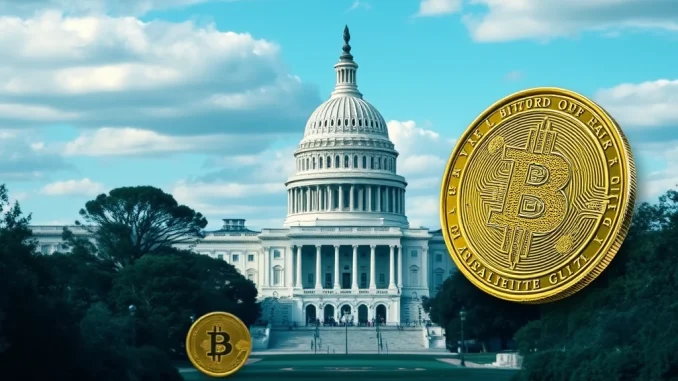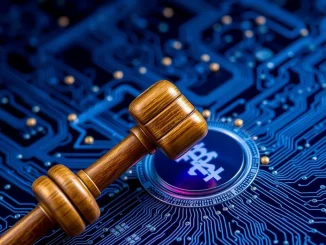
Big news is circulating from Capitol Hill regarding the ongoing efforts around US stablecoin regulation. For anyone tracking the crypto space, particularly how governments are looking to manage digital assets, this development is significant.
What’s Happening with the Senate Stablecoin Bill?
According to Eleanor Terrett, host of Crypto in America, a draft amendment concerning the Senate stablecoin bill is currently being circulated within the U.S. Senate. This isn’t the final version, but the fact that a draft is making the rounds indicates active progress and discussion behind the scenes.
Understanding the GENIUS Act
The bill in question is known as the GENIUS Act. While specific details of the full bill might evolve, its primary focus is on establishing a regulatory framework specifically for stablecoins. Stablecoins, designed to maintain a stable value relative to a specific asset like the US dollar, are seen by many lawmakers as needing clear rules due to their potential role in payments and financial stability.
Why is US Stablecoin Regulation a Priority?
Regulating stablecoins has become a key focus for policymakers in the United States. The rationale often cited includes:
- Ensuring financial stability, preventing runs similar to traditional banks.
- Protecting consumers from potential risks associated with poorly managed stablecoin reserves or operations.
- Combating illicit finance activities that could potentially use stablecoins.
- Maintaining the dominance of the US dollar in the digital age.
Progress on a comprehensive stablecoin bill has been debated for some time, highlighting differing views on how best to approach this technology.
Diving Deeper into the GENIUS Act Amendment
The circulated draft amendment to the GENIUS Act reportedly covers several critical areas. These points are often central to legislative discussions around financial instruments and digital assets:
- Consumer Protection: This likely includes provisions aimed at safeguarding individuals who hold or use stablecoins, potentially addressing issues like transparency around reserves, redemption rights, and handling of customer funds.
- Bankruptcy: How stablecoin issuers or related entities are handled in the event of bankruptcy is crucial. This section would aim to clarify the legal status of stablecoin holders and how their assets would be treated in insolvency proceedings.
- Ethics: While less common as a standalone legislative point in crypto bills, including ethics suggests lawmakers are considering broader conduct standards for stablecoin issuers and operators, potentially covering conflicts of interest or responsible practices.
These areas reflect core concerns that regulators have across traditional finance, now being applied specifically to the stablecoin sector.
The Broader Picture of Crypto Regulation US
This development with the GENIUS Act amendment is just one piece of the larger puzzle regarding crypto regulation US. Various government bodies, including the Treasury, Federal Reserve, SEC, and CFTC, have all weighed in or taken action concerning digital assets. A dedicated stablecoin framework is often seen as a potential first step towards broader crypto legislation, given stablecoins’ perceived similarities to traditional payment systems.
What Does This Mean for Stablecoin Bill Progress?
The circulation of a draft amendment doesn’t guarantee immediate passage of the stablecoin bill, but it signifies that discussions are active and specific language is being debated. Amendments are a standard part of the legislative process as lawmakers refine proposals, negotiate differences, and seek consensus. The inclusion of specific topics like bankruptcy and consumer protection indicates key points of focus for senators.
Summary
The U.S. Senate’s circulation of a draft amendment to the GENIUS Act is a noteworthy step in the ongoing effort to establish clear US stablecoin regulation. By addressing crucial areas like consumer protection, bankruptcy, and ethics, lawmakers are signaling their intent to build a robust framework for this segment of the digital asset market. As discussions around the Senate stablecoin bill continue, market participants and enthusiasts should monitor these developments closely, as they will shape the future landscape of crypto regulation US and how stablecoins operate within it.



